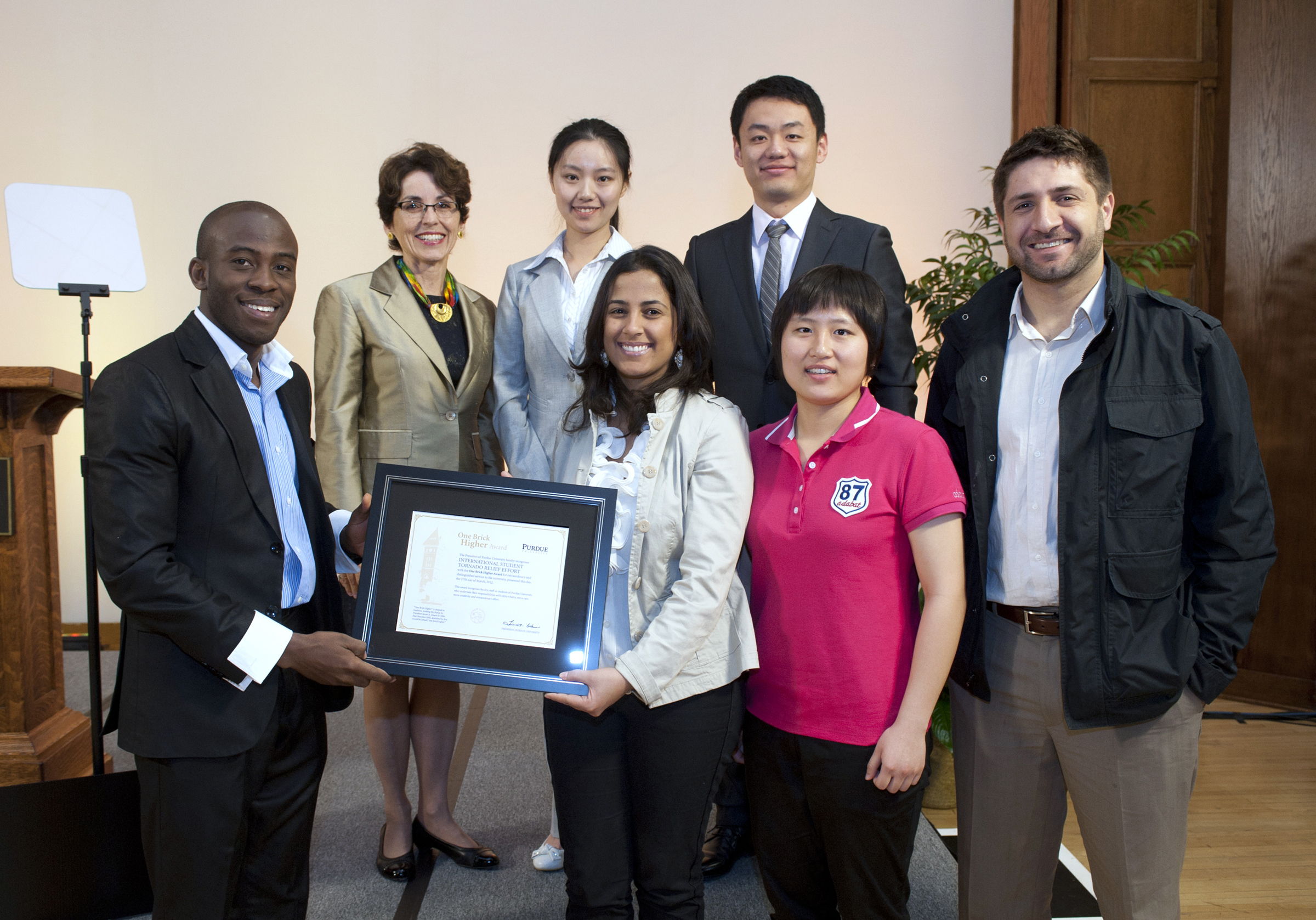Oluwatoba Omotilewa

Agricultural Economics
Mentor / Lab:
Dr. Ricker-Gilbert
Specific Research Area / Project:
International Economic Development
Undergraduate Institution:
University of Lagos, Nigeria
Research Profile:
Postharvest losses (PHL) are common in sub-Saharan Africa (SSA) and usually occur at different levels across the food value chain from farm to fork. In fact, recent estimate by the World Bank suggests a $4b annual food loss in SSA. This is bigger than the entire food aid received by the same region over the last decade. Several scholars assert that the lion share of PHL in SSA occur during the production, and storage and handling phases of the value chain. In Uganda for instance, lack of storage, pest infestation, and poor quality storage technologies have jointly contributed 63% and 61% of PHL by small and medium farm households respectively. Thus, reducing PHL at the storage and handling phase through the adoption of improved storage technology is important in curbing overall food loss, improving food quality and security, and increasing income generated from grain sales. Largely, grain crops constitute the mainstay of food security and means of livelihood/income for smallholder farmers in SSA, accounting for 37 percent of the roughly 70 percent of typical income accruing from crop production (World Bank 2011).
In my research, I focus on adoption of improved storage technology, Purdue Improved Crop Storage (PICS) bags invented at Purdue University, to reduce PHL from storage in maize and other major legumes, and the economic impacts of such improved technology on smallholder farm households. Based on the importance of maize in the Eastern Africa region, and the high volume of PHL, there is imperative need to better understand how adoption of improved storage technology can impact poor smallholder farm households’ 1) production and input use decisions; 2) income or net revenue as means of livelihood; 3) food security; 4) dietary diversity and nutrition security; and 5) gender differentiated impacts and women empowerment. Some of the interesting questions I am investigating are: how can access to improved storage technology and need to reduce losses from lack of storage, poor quality storage, and pest infestation affect a farmer’s decision on grain quantity produced and investment in other inputs such as seeds, fertilizer, and labor? Does the adoption of improved storage technology help increase productivity and on-farm income–through income effect–or help them diversify their crops–through substitution effect–whereby improving smallholder farm household’s welfare?
About Me:
In spite of my training as an engineer, and pursuing a doctorate degree in Civil Engineering, I never stopped being passionate about several economic developments and policies, and the impacts of such policies on the populations in the less developed countries in the world, especially Africa. This passion kept me reading books and articles from who is who in development economics: Jeffery Sachs, Joseph Stiglitz, Paul Collier, Dambisa Moyo, and Bill Easterly just to name a few. From my readings, I realized the developing world problems are well understood but often, the solutions have been one-cap-fits-all, globalized solution. “If it worked in Latin America, it must work in sub Saharan Africa” kind of approach. As such, they have mostly failed. Thus, as an African with first-hand knowledge of poverty and adverse effects of some ill-adopted polices, I felt the urge and the need to make an impact through the adaptation of global solutions to solve problems locally. After several consultation and counsel, deep thoughts and prayers, I made a 180 degree turn around from engineering to development economics.
As part of my thesis, I am currently working on a baseline survey for PICS3 in Uganda. The baseline survey is necessary in order to evaluate the impact of our intervention on smallholder farm households. It has been an interesting experience so far. Traveling across Uganda is breath taken. Beautiful terrain/landscape, crazy capital-Kampala. I love what I am doing in the field especially when I see the joy, the light in the faces of these farm households when they hear of the PICS bags “wonder.” It is fulfilling to see them relieved when they learn they will be able to store their grains longer without fear of losing them. Rather than sell cheap at harvest, they would now be able to store longer and potentially sell at better prices.
I see myself working in the international economic development field, preferably multilateral institutions, international organizations, or NGOs/Foundations focusing on economic developments for less developed countries especially sub Saharan Africa. Of course, human capital and physical capital are complementary. Thus, I would be fulfilling my purpose in life –helping to lift the poor at the bottom of the pyramid –wherever I am able to utilize my training at Purdue in an enabling environment be it in Washington, Nairobi, New York, Kampala, Tunis, Abuja, or anywhere else in the world.
Awards:
- Several awards as an undergraduate including Total/Elf Petroleum Undergraduate Scholarship (2006-2009)
- Office of Naval Research (ONR) Excellence in Undergraduate Research Award (Elizabeth City State University, 2008)
- Excellence in Leadership Award as a Congressman (University of Lagos, 2009), and graduating top of my class (2009)
- I was also part of the International Students and Scholars who won the One Brick Higher Award from President Cordova (Purdue University, 2012)
Publications:
- Estimating proximate determinants of postharvest loss in sub Saharan Africa: A case study of Maize in Tanzania (2014 Manuscript)
- Western Aid vs. Eastern Trade in sub Saharan Africa: A Problem Orientation Framework Perspective (2013 Manuscript)

